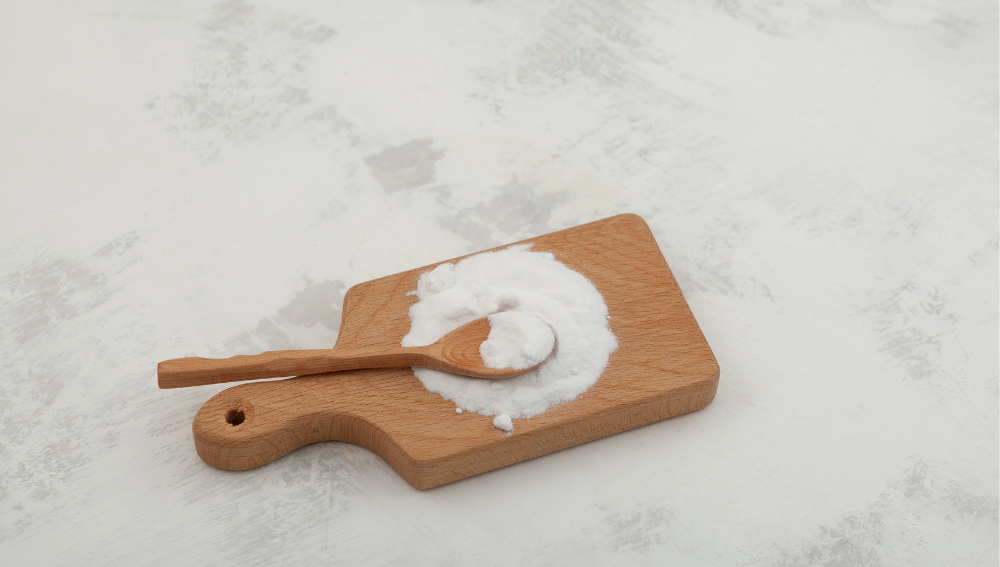Agar agar is a popular ingredient in many recipes, especially in vegan and vegetarian cooking. It is a plant-based gelatin substitute that is derived from seaweed and often used as a thickening agent in a variety of dishes.
However, it can be difficult to find and may not be suitable for those with dietary restrictions. In this article, I will explore some agar agar substitutes that can be used in place of this ingredient.
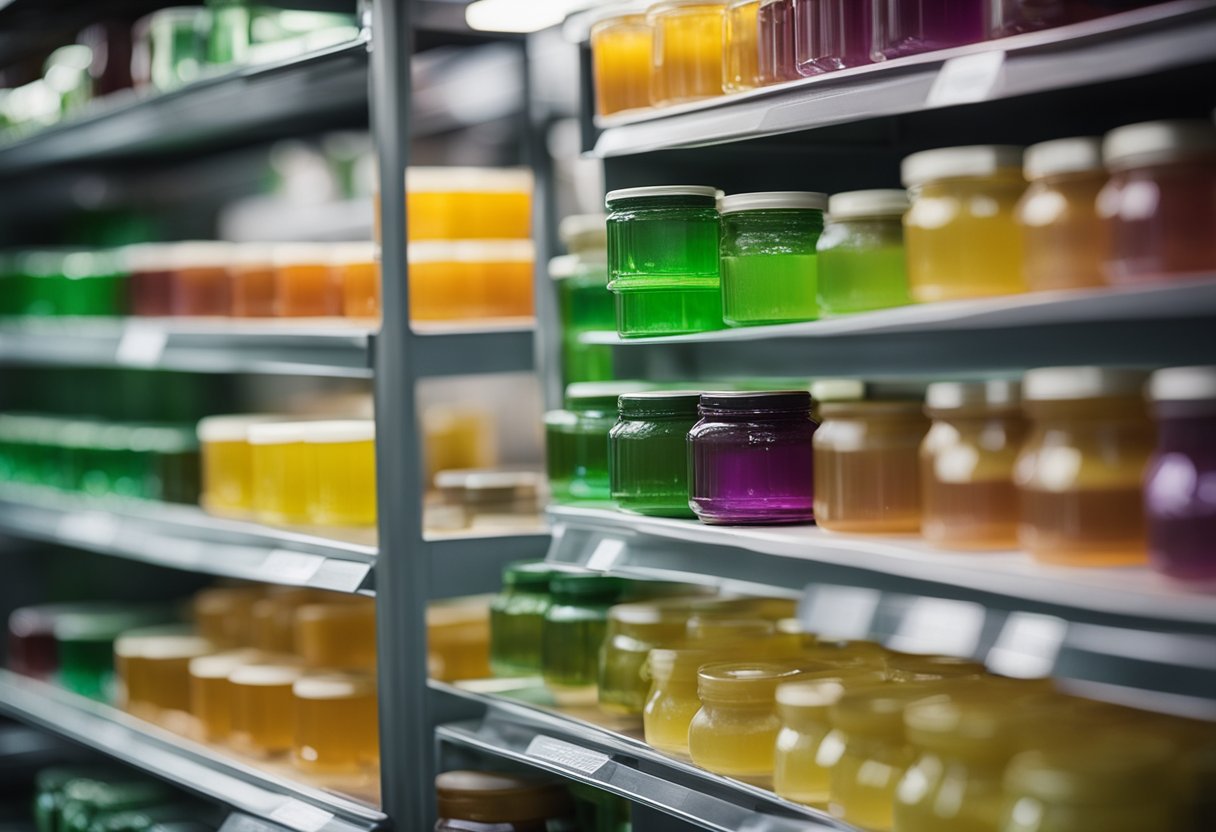
Understanding Agar Agar Agar agar is a natural gelling agent that is commonly used in cooking and baking. It is derived from red algae and is often used as a vegan alternative to gelatin.
Agar agar is available in both powder and flake form and can be found in many health food stores and online retailers. It is a versatile ingredient that can be used in a variety of dishes, including desserts, soups, and sauces.
Key Takeaways
- Agar agar is a plant-based gelatin substitute derived from seaweed that is often used as a thickening agent in cooking and baking.
- There are several substitutes for agar agar, including pectin powder, xanthan gum, cornstarch, and arrowroot powder.
- These substitutes can be used in place of agar agar in a variety of dishes, making it easier for those with dietary restrictions to enjoy their favorite recipes.
Understanding Agar Agar
As a vegan, I often use agar agar as a natural thickener in my cooking and baking. Agar agar is a gelatinous substance that is derived from red algae, which is a type of seaweed.
It is a popular substitute for gelatin and is often used in vegan and vegetarian recipes.
Agar agar is a natural thickener that can be used to set liquids and create a jelly-like texture in foods.
It is a great alternative to gelatin because it is plant-based and does not contain any animal products. Agar agar is also a good source of fiber and can help promote healthy digestion.
One of the benefits of agar agar is that it can set at room temperature, unlike gelatin, which requires refrigeration. This makes it a great option for desserts that need to be served at room temperature, such as panna cotta or fruit jellies.
Agar agar works by forming a gel when it comes into contact with liquid. The gel is created by a reaction between the agar agar and the liquid, which causes the agar agar to absorb the liquid and expand. As the agar agar expands, it traps the liquid and creates a solid gel.
It is important to note that agar agar requires heat to dissolve and set properly. When using agar agar, it is important to follow the recipe instructions carefully to ensure that it is used correctly.
Overall, agar agar is a versatile and natural thickener that can be used in a variety of recipes. It is a great option for vegans and vegetarians who are looking for a plant-based alternative to gelatin.
Agar Agar in Cooking
As a vegan alternative to gelatin, agar agar is commonly used in cooking and baking. It is versatile and can be used in a variety of recipes, including jellies, puddings, soups, sauces, and even cheesecake and panna cotta.
Agar agar is a great thickening agent and can help create a smooth and creamy texture in desserts. It is also used to give jellies and jams their structure and texture. In baking, agar agar can help set custards and pies without the use of eggs.
When substituting agar agar in recipes, it is important to consider the recipe and the desired texture. For example, cornstarch can be used as a substitute for agar agar in some recipes, but it may not provide the same firmness and structure.
Other substitutes for agar agar include pectin powder, gelatin powder, xanthan gum, arrowroot powder, tapioca starch, guar gum, cassava flour, carrageenan, and vegan Jel. Each substitute has its own unique properties and should be used accordingly.
In general, when using agar agar in cooking, it is important to follow the recipe carefully and measure the agar agar accurately. Too much agar agar can result in a rubbery texture, while too little can result in a runny texture.
Overall, agar agar is a great ingredient to have in your pantry for vegan cooking and baking. With its versatility and ability to create a variety of textures, it is a great substitute for gelatin in many recipes.
Forms of Agar Agar
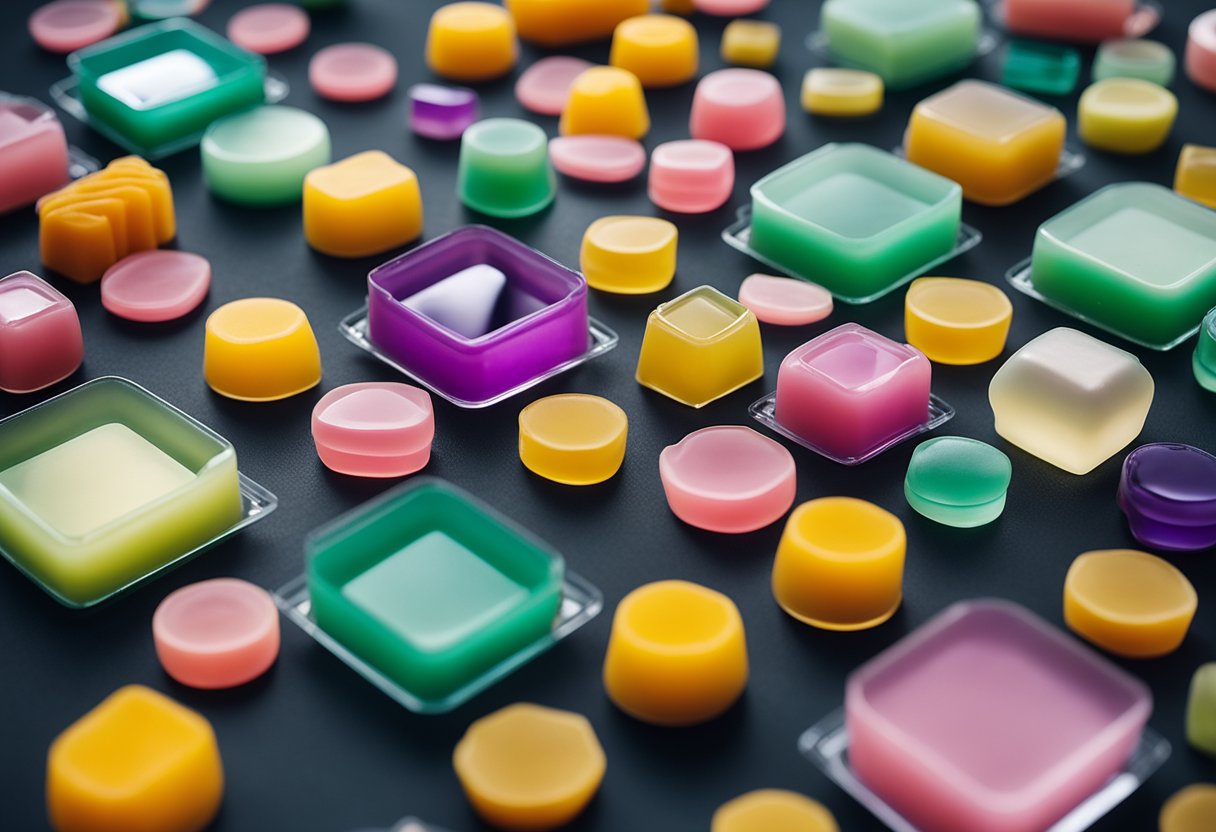
As a versatile ingredient, agar agar comes in various forms to suit different culinary needs. The most common forms of agar agar are powder, flakes, strands, and bars.
Agar Agar Powder
Agar agar powder is the most popular and widely used form of agar agar. It is a fine white powder that dissolves easily in hot liquids and sets quickly when cooled, making it ideal for thickening and stabilizing desserts, sauces, and soups.
Agar agar powder is also a popular vegan substitute for gelatin.
Agar Agar Flakes
Agar agar flakes are another common form of agar agar. They are made by pressing and drying agar agar strands, resulting in thin, translucent flakes.
Agar agar flakes are easy to use and dissolve quickly in hot liquids. They are often used in recipes that require a softer texture, such as custards, puddings, and pie fillings.
Agar Agar Strands
Agar agar strands are long, thin pieces of dried seaweed that are typically sold in bundles. They are commonly used in Asian cuisine, particularly in Japanese desserts like anmitsu and agar jelly.
Agar agar strands require more preparation than other forms of agar agar, as they need to be soaked in water for at least an hour before use. They also take longer to dissolve than agar agar powder or flakes.
Agar Agar Bars
Agar agar bars are a less common form of agar agar. They are made by boiling agar agar powder or flakes with water, then pouring the mixture into molds to set. Agar agar bars are often used in recipes that require a firmer texture, such as fruit snacks and candy.
In summary, agar agar is available in a variety of forms, each with its own unique properties and uses. Whether you prefer agar agar powder, flakes, strands, or bars, there is a form of agar agar that can help you achieve the perfect texture and consistency in your culinary creations.
Agar Agar vs Gelatin
As gelling agents and thickening agents, agar agar and gelatin serve similar purposes in various recipes. However, they are quite different in composition and properties.
Gelatin, a protein obtained from the collagen in animal bones, tendons, and skin, has been a popular gelling agent for centuries.
It is commonly used in desserts, jellies, and other recipes to create a smooth, elastic texture. Gelatin is not vegan or vegetarian-friendly, as it is derived from animal products.
Agar agar, on the other hand, is made from red algae and is a popular vegetarian substitute for gelatin.
It is often used in Asian desserts, such as jelly or pudding, and can also be used as a thickener in savory dishes. Agar agar is a good option for those who prefer vegan or vegetarian diets.
One major difference between agar agar and gelatin is their gelling strength. Agar agar sets at a higher temperature than gelatin, which means it can withstand higher temperatures and acidic ingredients without breaking down.
Gelatin, on the other hand, is more sensitive to temperature and acidity, which can affect its gelling strength.
Another difference is that agar agar sets more firmly than gelatin. This means that agar agar can be used to create a firmer texture, while gelatin is better for a softer, more delicate texture.
When substituting agar agar for gelatin in a recipe, it is important to keep in mind that they are not interchangeable at a 1:1 ratio.
Agar agar is much stronger than gelatin, so you will need to use less of it to achieve the same gelling effect. It is recommended to use about 1/3 to 1/2 the amount of agar agar as you would gelatin.
In summary, agar agar and gelatin are both useful gelling agents and thickening agents, but they have significant differences in composition, properties, and gelling strength.
Agar agar is a great vegan gelatin substitute, while gelatin is a classic option for non-vegan recipes.
Substitutes for Agar Agar
As a vegan or vegetarian, finding a substitute for agar agar can be a bit of a challenge. Fortunately, there are several alternatives to agar agar that you can use in your cooking and baking.
One of the most popular substitutes for agar agar is pectin powder. Pectin is made from berries and citrus fruit, which makes this ingredient’s cell walls in fruit.
It is known as the best thickener in jams and jellies. When using pectin powder as a substitute for agar agar, you should combine it in a ratio of 3:1.
Another popular substitute for agar agar is cornstarch. Cornstarch is a great thickener and can be used in a variety of recipes.
However, keep in mind that when using cornstarch as a substitute for agar agar, you have to adjust the number of tablespoons, as it’s not always a 1 to 1 ratio.
Xanthan gum is another great substitute for agar agar. It is a natural thickener that is often used in gluten-free baking. When using xanthan gum as a substitute for agar agar, you should use half the amount of xanthan gum as you would agar agar.
Arrowroot powder is another popular substitute for agar agar. It is a natural thickener that is often used in gluten-free baking. When using arrowroot powder as a substitute for agar agar, you should use a ratio of 2:1.
Guar gum is another great substitute for agar agar. It is a natural thickener that is often used in gluten-free baking. When using guar gum as a substitute for agar agar, you should use half the amount of guar gum as you would agar agar.
Finally, gelatin powder is another popular substitute for agar agar. While it’s not vegan or vegetarian, it can be used in many recipes that call for agar agar.
When using gelatin powder as a substitute for agar agar, you should use the same amount of gelatin powder as you would agar agar.
Overall, there are many substitutes for agar agar that you can use in your cooking and baking.
Whether you prefer pectin powder, cornstarch, xanthan gum, arrowroot powder, guar gum, or gelatin powder, there is a substitute that will work for your recipe.
Using Pectin as Substitute
As a vegetarian and vegetable-based substitute to agar agar, pectin powder is a great alternative. Pectin is made from berries and citrus fruit, which makes this ingredient’s cell walls in fruit.
It is known as the best thickener in jams and jellies. It will provide the jelly structure and texture as it should be and can be used instead of agar agar.
When using pectin powder as a substitute for agar agar, it is essential to keep in mind that it is not as strong as agar agar. Therefore, you may need to use more pectin powder than agar agar in your recipe.
Pectin powder is also not suitable for all recipes that require agar agar. For instance, it may not work well in recipes that require a firm gel-like structure.
To use pectin powder as a substitute for agar agar, follow these simple steps:
- Determine the amount of agar agar required in your recipe.
- Use two to three times the amount of pectin powder instead of agar agar.
- Mix the pectin powder with the sugar in your recipe.
- Add the pectin mixture to the liquid you want to thicken.
- Cook the mixture according to the recipe instructions.
Pectin powder is a great substitute for agar agar in recipes that require a softer texture, such as jams and jellies. It is a natural ingredient that is easy to find in most grocery stores.
Pectin powder is also a good source of fiber and nutrients, making it a healthier option than other thickeners.
Using Xanthan Gum as Substitute
I have found that xanthan gum is a great substitute for agar agar in many recipes. Xanthan gum is made by fermenting a carbohydrate with Xanthomonas campestris bacteria and then processing it into a solid form using alcohol.
It is commonly used as a thickener, stabilizer, and emulsifier in food products.
One of the benefits of using xanthan gum as a substitute for agar agar is that it is readily available in most grocery stores. It is also relatively affordable compared to other gelling agents.
When using xanthan gum as a substitute for agar agar, it is important to keep in mind that a little goes a long way. Xanthan gum is much more powerful than agar agar, so only a small amount is needed to achieve the desired texture.
To use xanthan gum as a substitute for agar agar, start by mixing a small amount of xanthan gum with a liquid in a separate bowl.
Once the xanthan gum has dissolved, add it to the recipe and stir well. Be sure to mix the xanthan gum thoroughly to avoid clumps.
It is also important to note that xanthan gum may not work well in acidic recipes. In these cases, guar gum may be a better substitute. Guar gum is another gelling agent that is made from the seeds of the guar plant and is often used in gluten-free baking.
Overall, I have found that xanthan gum is a great substitute for agar agar in many recipes. It is easy to find, affordable, and easy to use. However, it is important to use it in moderation and to be aware of its limitations in acidic recipes.
Using Cornstarch as Substitute
When it comes to finding a substitute for agar agar, cornstarch is an excellent option. Cornstarch is a common thickening agent that is readily available in most grocery stores.
It is also a great alternative for those who are looking for a gluten-free option as it is made from corn and does not contain wheat flour.
To use cornstarch as a substitute for agar agar, you can use a 1:1 ratio. This means that for every tablespoon of agar agar that your recipe calls for, you can use one tablespoon of cornstarch instead.
However, keep in mind that cornstarch may not provide the same texture and structure as agar agar, so you may need to adjust the recipe accordingly.
When using cornstarch as a thickening agent, it is important to mix it with cold water before adding it to hot liquids. This will help prevent lumps from forming and ensure that the cornstarch is evenly distributed throughout the recipe.
One thing to note is that cornstarch may not work well in recipes that require prolonged cooking or baking, as it may break down and lose its thickening properties. In this case, you may need to use another thickening agent, such as agar agar or gelatin.
Overall, cornstarch is a versatile and readily available substitute for agar agar. It can be used in a variety of recipes, from sauces and gravies to custards and puddings.
With a little experimentation and adjustment, you can achieve great results with cornstarch as a thickening agent.
Using Arrowroot Powder as Substitute
As a versatile thickening agent, arrowroot powder is a great substitute for agar agar in many recipes. It is a gluten-free, grain-free, and vegan option, making it perfect for those with dietary restrictions.
Arrowroot powder is made from the root of the arrowroot plant, which is native to South America. It has a neutral flavor and is easy to use.
When using arrowroot powder as a substitute for agar agar, it is important to keep in mind that it has different properties.
Arrowroot powder thickens at a lower temperature than agar agar, so it is best to add it towards the end of the cooking process. It also does not set as firmly as agar agar, so it may not be the best option for recipes that require a firm texture.
To use arrowroot powder as a substitute for agar agar, mix it with cold water before adding it to the recipe. The ratio of arrowroot powder to liquid is typically 1:1. For example, if the recipe calls for 1 tablespoon of agar agar, use 1 tablespoon of arrowroot powder instead.
Other substitutes for agar agar include tapioca powder, tapioca flour, potato starch, and tapioca starch. Each of these substitutes has its own unique properties, so it is important to choose the right one for the recipe.
Tapioca powder and tapioca flour are similar to arrowroot powder in that they thicken at a lower temperature and have a neutral flavor. Potato starch and tapioca starch are good substitutes for agar agar in recipes that require a firmer texture.
Overall, arrowroot powder is a great substitute for agar agar in many recipes. It is easy to use, gluten-free, grain-free, and vegan. When using arrowroot powder as a substitute, keep in mind that it has different properties than agar agar and may not be the best option for all recipes.
Other Agar Agar Substitutes
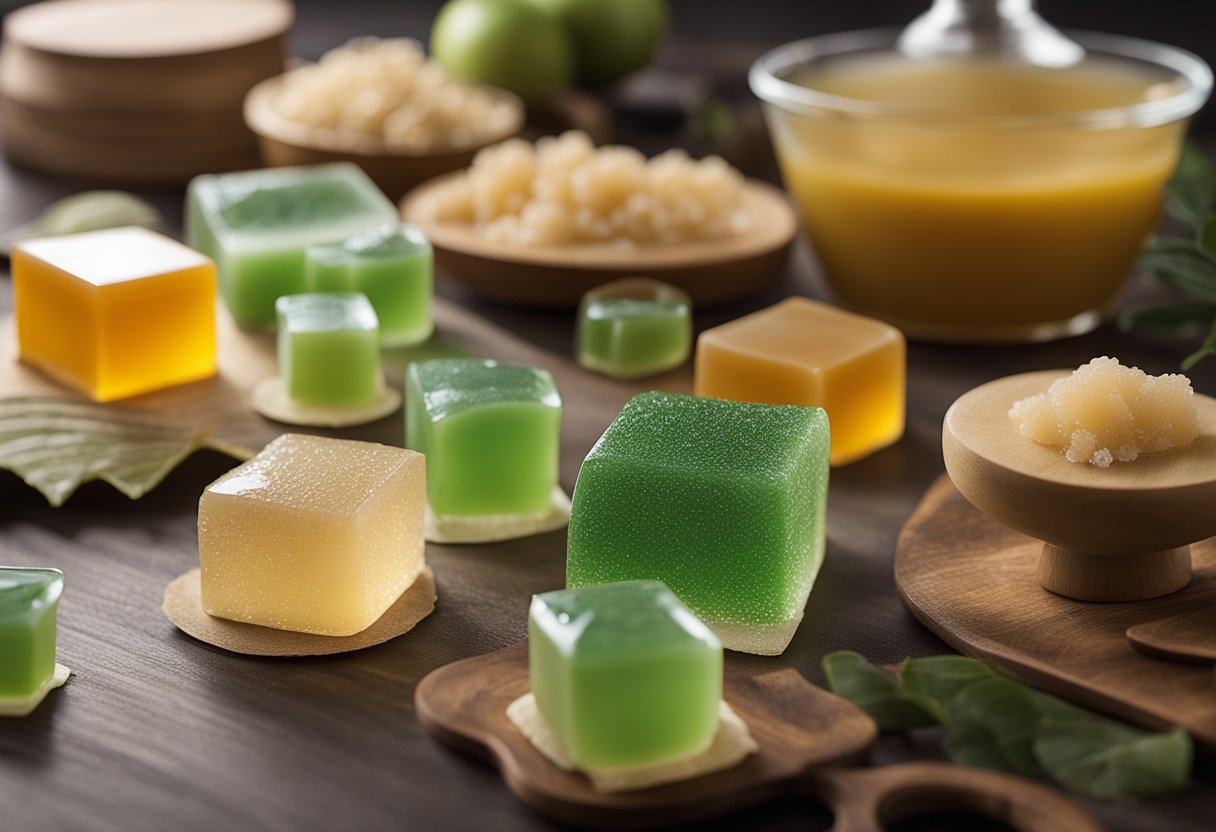
When it comes to agar agar substitutes, there are a few other options that can be used in place of this popular thickening agent. One such substitute is carrageenan, which is derived from seaweed and is often used as a stabilizer in the food industry.
Carrageenan can be used to thicken and stabilize a variety of different foods, including dairy products, sauces, and beverages.
Another option for those looking for a plant-based substitute for agar agar is vegan gelatin. This product is made from a combination of vegetable gums and is often used in vegan cooking and baking to achieve a similar texture to traditional gelatin.
Vegan gelatin can be used in a variety of different recipes, including desserts, sauces, and jellies.
For those who prefer a more natural substitute for agar agar, there are a few different plant-based options to choose from. One such option is pectin, which is derived from fruits and vegetables and is often used as a thickener in jams and jellies.
Pectin can be used to stabilize and thicken a variety of different foods, including sauces, soups, and desserts.
Finally, for those who are interested in brewing their own beer or cider, there are a few different substitutes for agar agar that can be used to clarify the liquid.
One such substitute is Irish moss, which is a type of seaweed that is often used in brewing to clarify the liquid and remove any impurities. Other options for clarifying beer or cider include gelatin and isinglass.
Overall, there are plenty of different agar agar substitutes to choose from, whether you’re looking for a vegetarian or plant-based option, a natural substitute, or a clarifying agent for brewing.
By experimenting with different substitutes, you can achieve the desired texture and stability in your recipes without relying on agar agar.
Where to Buy Agar Agar and Its Substitutes
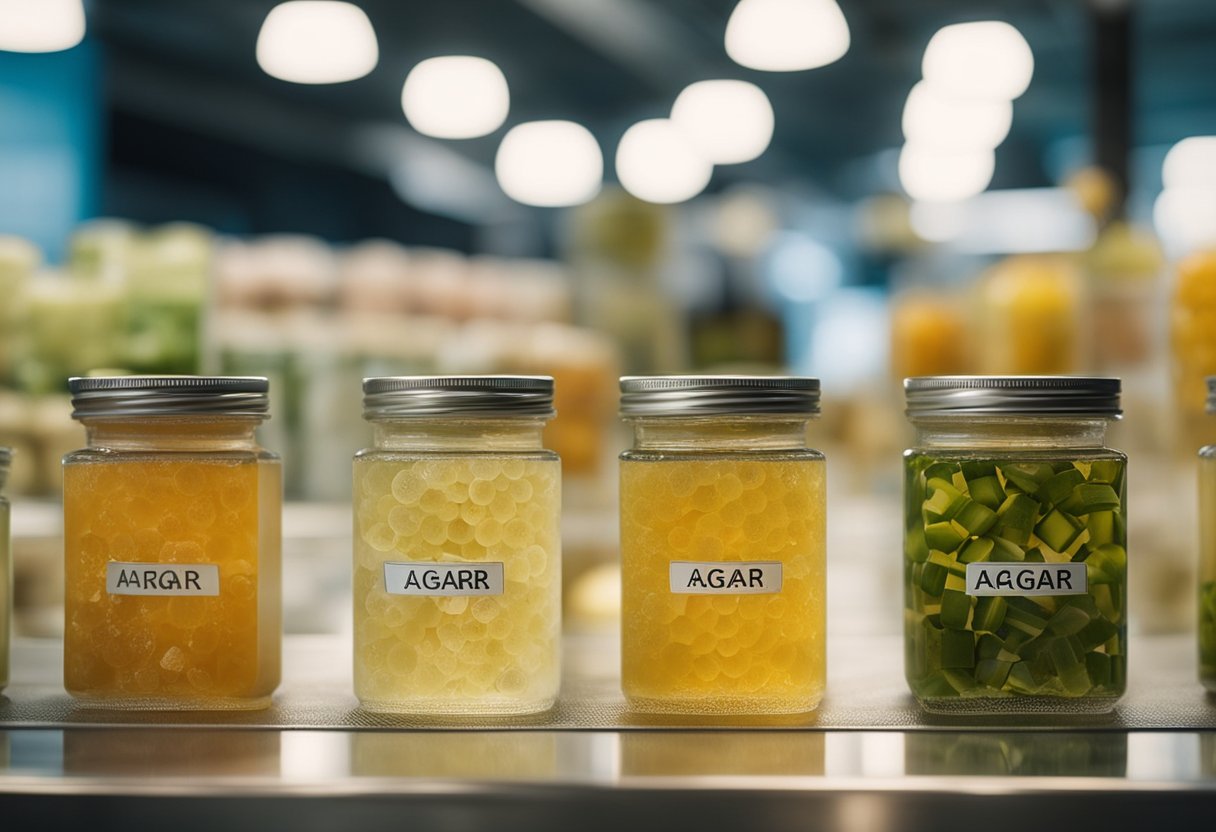
As a plant-based alternative to gelatin, agar agar powder is a staple ingredient in many vegan and vegetarian kitchens. Fortunately, it’s easy to find agar agar powder at many grocery stores, health food stores, and online retailers.
If you prefer to shop in-store, check out the baking and specialty food aisles of your local grocery store. Health food stores and stores that cater to vegan and vegetarian lifestyles are also great places to find agar agar powder.
If you’re having trouble finding agar agar powder in your local stores, try looking online. Many online retailers specialize in vegan and vegetarian products, including agar agar powder. You can also find agar agar powder on popular e-commerce websites like Amazon.
If you’re looking for agar agar substitutes, you may have to do a bit more searching. Pectin powder, cornstarch, xanthan gum, arrowroot powder, and guar gum are all potential substitutes for agar agar, but they may not be available at every grocery store.
If you’re having trouble finding agar agar substitutes in your local stores, try looking online. Many online retailers specialize in vegan and vegetarian products, including agar agar substitutes. You can also find agar agar substitutes on popular e-commerce websites like Amazon.
It’s worth noting that agar agar powder is often called “China grass” or “China isinglass” in some parts of the world, particularly in Asia.
Japanese kanten is another term for agar agar. If you’re traveling to Asia, you may be able to find agar agar powder or its substitutes in local grocery stores or specialty food shops.
Overall, whether you’re looking for agar agar powder or its substitutes, there are plenty of options available both in-store and online. With a bit of searching, you’ll be able to find the perfect ingredient for your vegan and vegetarian recipes.
Additional Information About Agar Agar
As a vegan and gluten-free alternative to gelatin, agar agar has become increasingly popular in recent years. It is a carbohydrate that is extracted from seaweed and is colorless, odorless, and tasteless.
Agar agar is commonly used in scientific purposes, such as microbiology, to grow bacteria and fungi.
Agar agar can be boiled in water or heated to room temperature to dissolve. It has a firmer structure than gelatin, making it an ideal substitute for vegetarians who do not consume animal products.
When refrigerated, agar agar becomes even firmer, giving it a creamy texture that is perfect for desserts.
One of the benefits of agar agar is that it can be used to create a wide range of textures, from soft and jiggly to firm and chewy. It is also a great thickening agent for sauces and soups.
While agar agar is a great substitute for gelatin, it is important to note that it may not work in the same way in all recipes.
For example, agar agar may not be the best choice for recipes that require fermenting or for recipes that call for the use of alcohol.
In terms of nutrition, agar agar is low in calories and is a good source of protein. It is also rich in minerals such as calcium, iron, and magnesium.
Overall, agar agar is a versatile ingredient that can be used in a variety of recipes. It is a great option for those who are looking for a vegan and gluten-free alternative to gelatin, and it can be used to create a wide range of textures and flavors.
Frequently Asked Questions
What can I use instead of agar in a recipe?
If you don’t have agar agar powder, you can use other thickeners such as cornstarch, gelatin, pectin powder, xanthan gum, arrowroot powder, tapioca starch, guar gum, carrageenan, or vegan Jel.
Keep in mind that when using these substitutes, you may need to adjust the amount used as it’s not always a 1 to 1 ratio.
How do I substitute cornstarch for agar agar?
Cornstarch is a popular substitute for agar agar, but it has a different texture and thickening power. To substitute agar agar with cornstarch, mix 1 tablespoon of cornstarch with 3 tablespoons of water and stir until it dissolves. Then, add the mixture to the recipe and cook until it thickens.
What are the best agar agar substitutes?
The best agar agar substitutes include cornstarch, gelatin, pectin powder, xanthan gum, arrowroot powder, tapioca starch, guar gum, carrageenan, and vegan Jel.
Each substitute has its own unique properties, so it’s best to experiment and find the one that works best for your recipe.
Are there any natural alternatives to agar agar?
Yes, there are natural alternatives to agar agar such as carrageenan, which is derived from seaweed, and arrowroot powder, which is extracted from the roots of the arrowroot plant.
These alternatives are vegan-friendly and can be used in place of agar agar in many recipes.
What is the difference between agar agar powder and cornstarch?
Agar agar powder is derived from seaweed and has a stronger thickening power than cornstarch. Cornstarch is made from corn and has a more neutral flavor than agar agar powder.
Additionally, agar agar powder sets at room temperature, while cornstarch requires heat to thicken.
Where can I find agar agar substitutes?
Agar agar substitutes can be found in most health food stores, specialty grocery stores, and online retailers. Some common brands include Bob’s Red Mill, Now Foods, and Anthony’s Goods.


